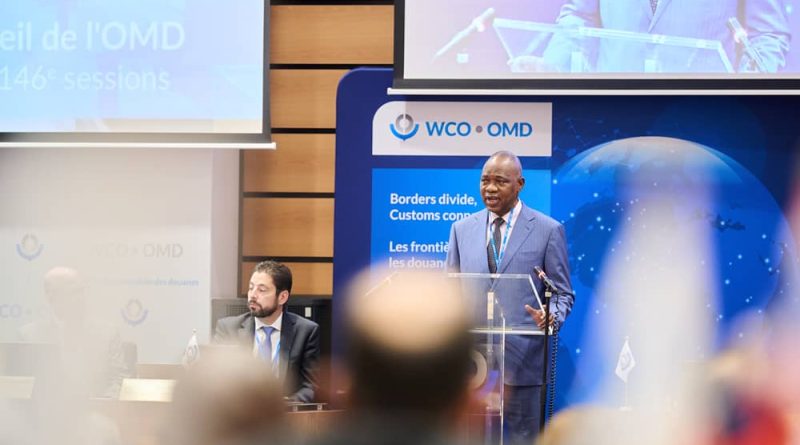Nigeria chairs World Customs Organisation Council first time in 73 years
Bashir Adewale Adeniyi, Comptroller General of the Nigeria Customs Service (NCS), has been elected Chairperson of the World Customs Organisation (WCO) Council, the highest decision-making body in global customs administration.
The election took place during the concluding session of the 145th/146th WCO Council Meetings held on Saturday, June 28, 2025, at the WCO headquarters in Brussels.
With this, Adeniyi becomes the first Nigerian to hold the position since the council was established in 1952, succeeding South Africa’s Edward Kieswetter.
As chairperson, Adeniyi will lead the WCO’s Policy Commission, shape global customs discussions on trade facilitation, revenue optimisation, security, cross-border cooperation, and digital transformation.
He will also work alongside Ian Saunders, the WCO Secretary-General, to implement the organisation’s 2025–2028 Strategic Plan while pushing for greater inclusivity, capacity-building, and sustainability, particularly in developing countries.
Adeniyi, upon election, pledged to “promote innovation, equity, and deeper collaboration among member states in response to the complex realities of global trade.”
“We are entering a critical phase in the evolution of global trade, where customs must balance facilitation with enforcement, transparency with innovation, and sovereignty with cooperation,” Adeniyi said.
“I intend to work closely with member administrations and stakeholders to position the WCO as a dynamic, forward-looking institution fit for today’s challenges.”
Read also: Nigeria Customs charts path to efficiency in 2025
He acknowledged Kieswetter’s leadership as one that provided guidance and stability to the Council, laying “a solid foundation upon which current reforms can thrive,” Adeniyi said.
The Customs CG was lauded by Nigeria’s President Bola Tinubu, who appointed him to the position two years ago. He urged Adeniyi to “live up to the expectation of the WCO Council and even surpass it.”
The WCO Council, created under the Convention on the Establishment of a Customs Co-operation Council, oversees all WCO working bodies and guides policy direction for its 185 member states.
Its mandate centres on promoting uniformity, modernisation, and global best practices across customs administrations.
The chairperson of the Council also serves a diplomatic role, representing the WCO at global fora and deepening partnerships with external actors, including the Private Sector Consultative Group, international donor agencies, and multilateral trade bodies.
Shortly after the Council session, the South African flag was lowered while the Nigerian flag was hoisted at the WCO headquarters.
Under Adeniyi’s administration, the NCS says Nigeria is expected to shape reform conversations across the Global South, particularly in areas such as AfCFTA implementation, illicit trade suppression, and the integration of smart technologies in customs administration.





